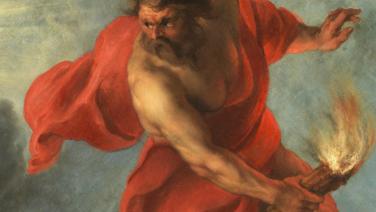
No one escapes fragility. It is inseparable from our human condition. From birth, human beings experience their natural fragility, that is constitutive and a reminder of our finitude until death. Likewise, overcoming this fragility has been a still-present, constant obsession throughout the history of humanity.
Aware of mankind’s shortcomings, Prometheus stole Hephaestus’s sacred fire to give it to human beings. Fire, τέχνη, was bestowed upon humanity to (re)enforce its condition, shed its fragility, and facilitate survival. Art creates a reality that didn’t exist before. This Prometheusian model was transferred into Christian thought as a divine creator. Later, in the Renaissance, divine ability would be replaced by the man-creator model and the establishment of Frankenstein, or the modern Prometheus: human beings’ technical ability to create. The need to give rational shape to ex nihilo powers (in the creationist context) explains the political, biological, and artistic practices that rationalise and enquire into the human condition’s limitless learning, plasticity, and malleability, reshaping its fragility into infinite power.
As such, mankind’s strength is found it its technical abilities, mutated in the idea of neoteny as an evolutionary mechanism. The being-for-death is converted into a being-in-neoteny, in which the improved human condition and transformation of fragility reach their peak through technology.
However, the τέχνη evolves into a political concept: fire’s theft also provides the possibility of living as a community, bestowing strength and establishing mankind as the dominator. Attempts to overcome fragility become instruments of bio-political practices and control: fire marks the political body and the singular; the cracks of our humanity deepen, community erodes, and the body shatters.
